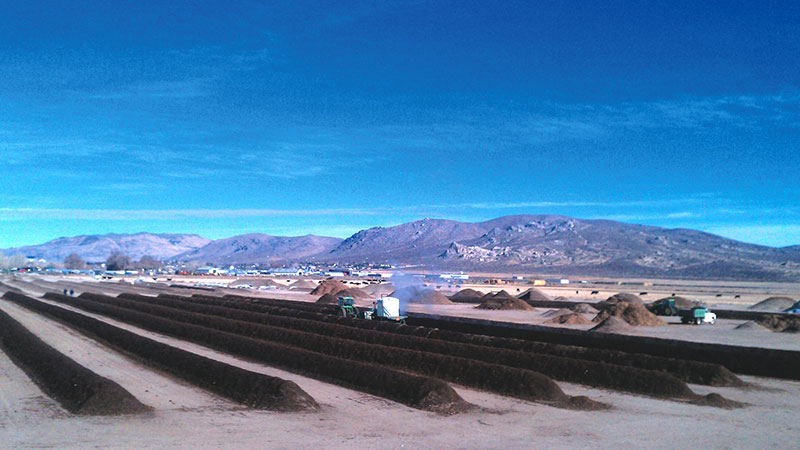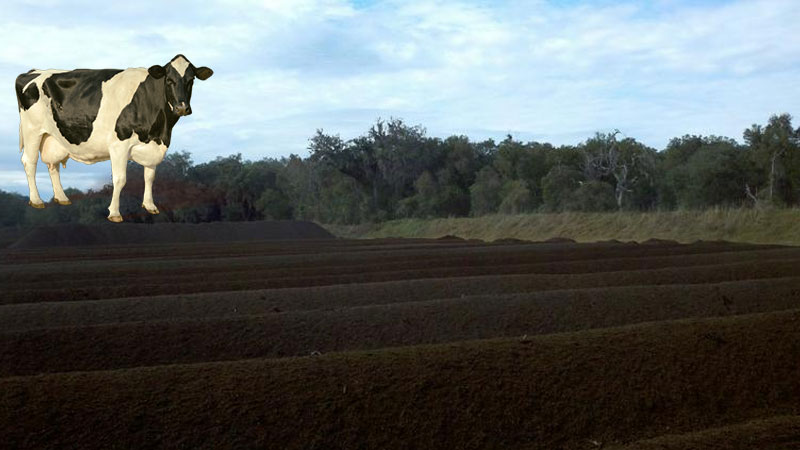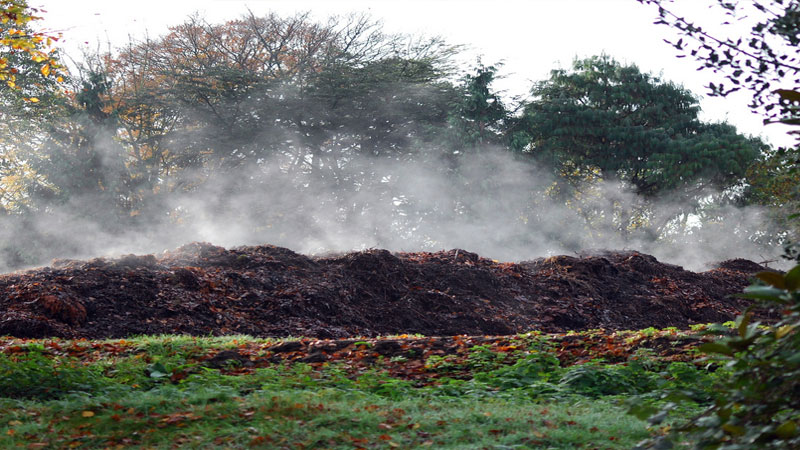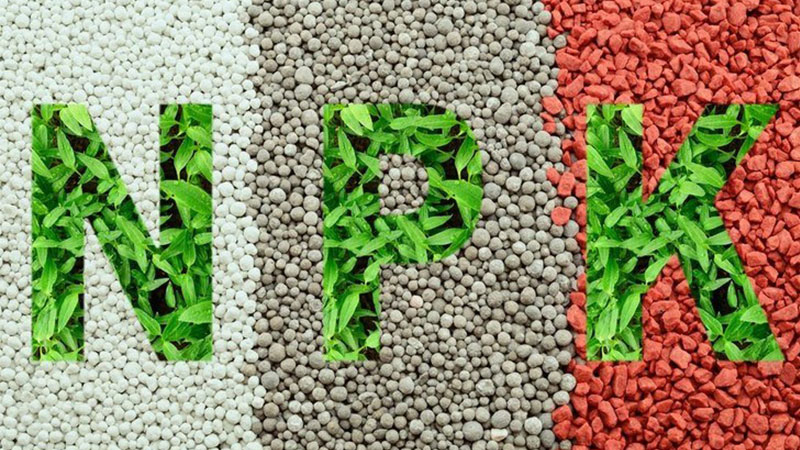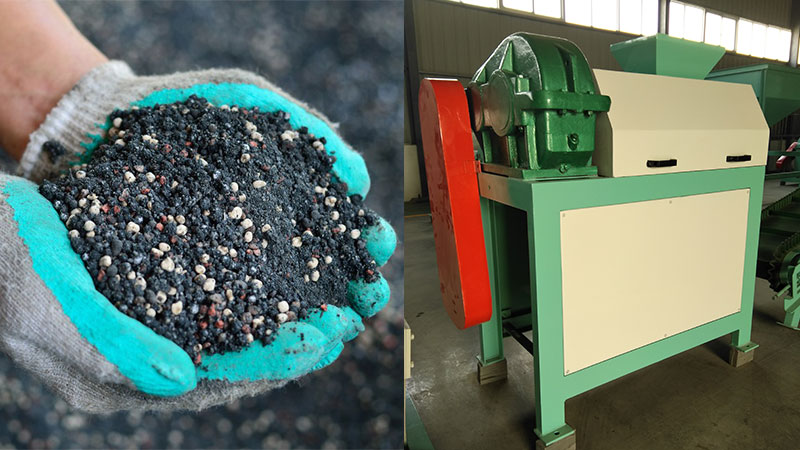Composting refers to the process that organic wastes degrade and stabilize under the action of microorganism, and generate the compost suitable for soil utilization. And the composting process is to use compost turner machine to mix and compost the 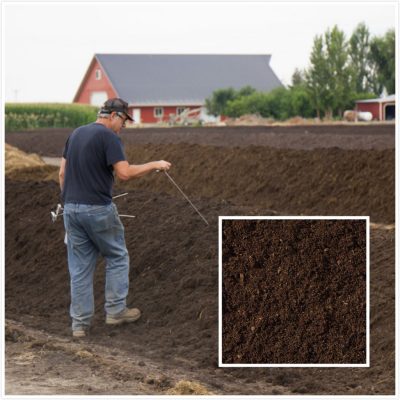 organic waste piles, accelerating materials aerobic reaction, promoting composting efficiency and ensuring composting quality. Composting process is also called fermentation process. The fermentation of organic wastes needs to decompose, stabilize and transform into organic fertilizer through the function of microorganism and under certain conditions with appropriate moisture content, appropriate carbon nitrogen ratio and certain oxygen concentration. After composting, organic wastes would be relatively stable with odor elimination, as well without harmful pathogenic bacteria and weed seeds, suitable used for soil as soil conditioner and organic fertilizer.
organic waste piles, accelerating materials aerobic reaction, promoting composting efficiency and ensuring composting quality. Composting process is also called fermentation process. The fermentation of organic wastes needs to decompose, stabilize and transform into organic fertilizer through the function of microorganism and under certain conditions with appropriate moisture content, appropriate carbon nitrogen ratio and certain oxygen concentration. After composting, organic wastes would be relatively stable with odor elimination, as well without harmful pathogenic bacteria and weed seeds, suitable used for soil as soil conditioner and organic fertilizer.
Composting Production Technology Process
Organic fertilizer production is generally divided into four stages: preprocessing, primary fermentation, secondary maturing and deep processing. Among these four stages, primary composting and secondary maturing are indispensable for the design and operation of organic fertilizer production plant, and essential production process for organic wastes composting.
- Preprocessing: it refers to raw materials processing before primary fermentation, aiming at adjusting moisture content and carbon nitrogen ratio.
- Primary composting: during this stage, the temperature of material piles is high over 60°C under the action of microorganism. At this point, people need to supply abundant oxygen in case of producing a large number of odor due to lacking ventilation. The optimum temperature of composting is around 55°C because among this temperature, microorganisms activity is more active and easier to decompose organic matter while the harmful pathogenic bacteria and parasites also can be killed. This process requires composting equipment to turn the material piles to achieve even fermentation and accelerate water evaporation of materials.
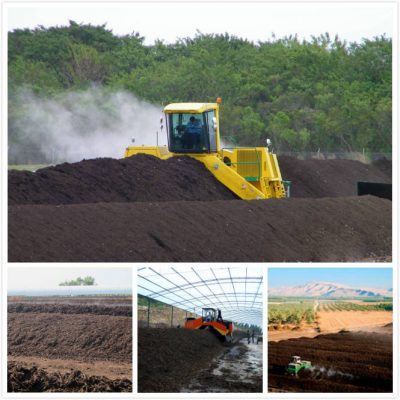
- Secondary maturing: after primary composting, organic wastes have not become thoroughly decomposed, still requiring secondary maturing to further decompose and stabilize the residual organic matters that are more difficult to decompose, so as to meet the technological requirements of subsequent process.
- Deep processing: in order to satisfy the need of customers or the requirement of standardized marketing, organic materials can be made into commercial organic fertilizer with organic fertilizer granulator machine through deep processing after fully composting.
Main Factors of Composting Process
- Carbon Nitrogen ratio: carbon and nitrogen are the most important among various elements required by microorganism decomposition. If C:N is too high, composting fertilizer would despoil the Nitrogen in the soil after applied into the soil, making the soil caught in Nitrogen starvation which would affect crop growth. However, if C:N is too low, Carbon for consumption would be low and Nitrogen nourishment is relative surplus, and then nitrogen in materials would become ammoniacal nitrogen to volatilize, causing the loss of abundant nitrogen and the lowering of fertilizer efficiency.
- Moisture: the best moisture of composting raw material is around 50%-60%. If water content is too low (lower than 30%), it would affect the vital activity of microorganism; while too high would cut down the speed of composting, causing anaerobic bacteria decomposing and producing odors and the leaching of nutrients. Recommend solid-liquid separator machine for water removal.
- Temperature: temperature is important for composting smoothly because it affect the growth of microorganism. Generally speaking, the degradation efficiency of organic matter through thermophilic bacteria is higher than through mesophilic bacteria. Too low temperature would extend the time of ripe composting while too high temperature would generate negative influence on microorganism.
- Oxygen ventilation: ventilation and oxygen supplying is one of the key factors for successful composting. The oxygen content required by composting is related to the organic matter content of composting raw materials because the more organic carbon, the higher oxygen consumption rate.
- pH value: as an important factor affecting microorganism growth, the most appropriate pH value is neutral or weakly alkaline because both too high and too low pH value would make composting treatment in trouble.

